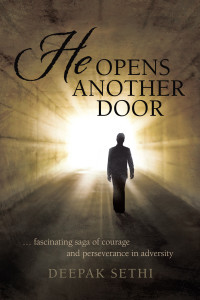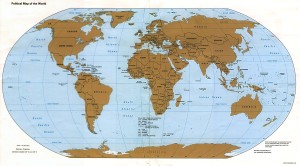Election-year Madness and the Soldier
Willy-nilly I have got sucked into the current election-year madness, where reasoned debate has given way to insults, innuendos, and dogmatic drivel. Even though writing this blog is a major distraction from work on my forthcoming book, “India at Sixty Seven – At Sixes and Sevens,” nonetheless, this also provides me an opportunity to gather differing viewpoints, which would be invaluable for my book.
Let me start with the customary DISCLAIMER. I have NO political affiliations; have NEVER voted during my 31-year service in the Indian Army (postal ballots never reached me), and still CANNOT vote since now I live in USA. Hence, I have absolutely NO BIAS either for or against any political outfit. Through a series of short articles on this site, I will attempt to analyze the dilemmas facing the electorate, and heartily welcome your candid views.
I start with the sense of bewilderment ESM and serving soldiers are feeling in the current Election-year madness. We, the ESM, have been angry due to denial of OROP and the steady diminution in our status. Coupled with mishandling of sensitive issues (ex-COAS and CNS), numerous scams (Adarsh, Augusta, Tatra etc), and criminal delays in modernization, UPA 2 quite justifiably is the target of our ire. However, cunning MOD bureaucrats are the real culprits, whose wily schemes against the military have succeeded all along due to the indifference of the entire political class – UPA, NDA et al. So, while anti-UPA sentiment is the ‘flavor of the day’, we must carefully evaluate if the alternatives are any better for us – the soldiers.
Having served in the Army for 31 years, this issue is obviously closest to my heart. My dissertation during the Long Defense Management Course was “The Impact of the Internal Security Environment on our Armed Forces.” Based on a broad overview of the prevailing internal environment at that time, I had formulated a conceptual model that comprehensively encapsulated all constituents of internal security and then analyzed how those affected soldiers. The dissertation was written in 1990-91, and the traumatic events of Babri Masjid, Bombay bomb blasts, and the communal riots they caused had NOT occurred until then. It is no consolation to me that much of my analysis was sadly proved prophetic by those events. For no fault of mine, the College of Defense Management awarded me the “Best Dissertation Award.”
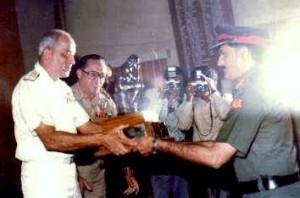 But more pertinent to the point at issue is the fact that our Armed Forces are a microcosm of the entire country, and reflect India’s wonderful diversity. We have a glorious tradition of GENUINE secularism within the Forces, regardless of whatever is happening elsewhere in the
But more pertinent to the point at issue is the fact that our Armed Forces are a microcosm of the entire country, and reflect India’s wonderful diversity. We have a glorious tradition of GENUINE secularism within the Forces, regardless of whatever is happening elsewhere in the
country. Inside our bunkers, tanks, and gun pits, we are all comrades-in-arms, who automatically depend upon each other in the thick of battle, without even a second thought about the other person’s religion or caste. Such is the military ethos! While sailors and airmen have always been better educated, now even the Army Jawans have good educational background. Besides, internet and media connectivity makes them much more aware, and they cannot remain insulated from the wily caste and communal politics of the politicians. I cannot help recall with sadness the insightful words of Nani Palkhivala in a film I had scripted and anchored for the Army in 1991-92, titled “Pause to Ponder – Ethics, Values, and the Soldier” for which I had interviewed JRD Tata and Palkhivala among others. He had said, “It is not a question of ‘If’; it is a question of only ‘When’ the Armed Forces would be affected by the prevailing malaise; they can’t remain insulated.” We cannot absolve ourselves by saying that we caught this bug from the political class – we have to remain alert ourselves.
Religion, which is a tremendous source of solace and comfort, can also be inflammatory when used as a political weapon. In a democracy, it is our right to canvass support for any party or candidate. I have no problem if someone extols a party’s development record or another’s list of scams etc. But I feel anguished and indeed alarmed if Hindutva supporters BRAZENLY keep posting EVERY DAY NUMEROUS POSTS vilifying Muslims or other minorities. Their claim, that they are merely “forwarding” posts of others, is patently dishonest. These are NOT just INNOCUOUS FORWARDS!!! Those are part of dangerous propaganda.
India has about 180 million Muslims, more than Pakistan, Bangladesh or any Muslim country other than Indonesia. If tiny Muslim-majority countries can breed hundreds of terrorists the world over, it is a tribute to India’s secularism and plurality, and to the vast majority of liberal-minded and humane Hindus who have not allowed themselves to be inflamed by Hindutva rhetoric, or else India would have become the largest breeding ground of Islamic terrorism. Unfortunately, some of my friends, even ex-servicemen, label this tolerance of Hindus as “APOLOGISTS” or “PACIFISTS” and even “TYPICAL HINDU COWARDICE,” to mask their own chauvinistic stance. This is truly a dangerous ideology – especially for the Armed Forces. Let me elaborate how this is not just an imaginary fear.
We all are painfully aware of the tragic events in the aftermath of Op Bluestar and Indira Gandhi assassination. Even though no right-minded Sikh ever justified the killing of Hindus by Khalistani extremists, nor did any Hindu condone the massacre of Sikhs during Nov 1984, it did leave unspoken scars on India’s psyche. It is a tribute to the sagacity of Army leadership at that time that resisted attempts to abolish one-class regiments. I had the proud privilege to take over a pure Sikh Regiment in Faridkot in 1987, which those days was badly affected by extremism. It was NOT my parent regiment, and I was posted to it because I had trained on the Bofors weapon system in Sweden and this regiment was earmarked to receive these guns and move to Sikkim due to the Sumdorong Chu flap with the Chinese. I can emphatically state that this regiment performed exceptionally well in that high-altitude sector and earned high laurels. Yet, due to the post-1984 environment, subtle hints were dropped that when Army Commander Lt Gen KS Brar’s chopper lands at the helipad within my regiment location, the perimeter guard could be from another unit. Obviously, I went ballistic and the idea was dropped immediately. On the due day, the Army Cdr went round my regiment and was profuse in his praise, but I and my officers felt very hurt by the higher HQ’s ‘suggestion’. The point I am making is that it is the solemn responsibility of all soldiers, not just those currently in service, but also of all of us – the ESM, TO NOT SAY OR WRITE ANYTHING THAT MILITATES AGAINST THE MILITARY’S SECULAR ETHOS, regardless of our political persuasions.
RELIGION, THOUGH VERY PERSONAL, IS ALSO A TOUCHY ISSUE. LET US KEEP IT IN OUR HEARTS AND IN OUR HEARTHS, OR ELSE THE ELECTION SEASON MADNESS MIGHT AFFECT THE SOLDIER.


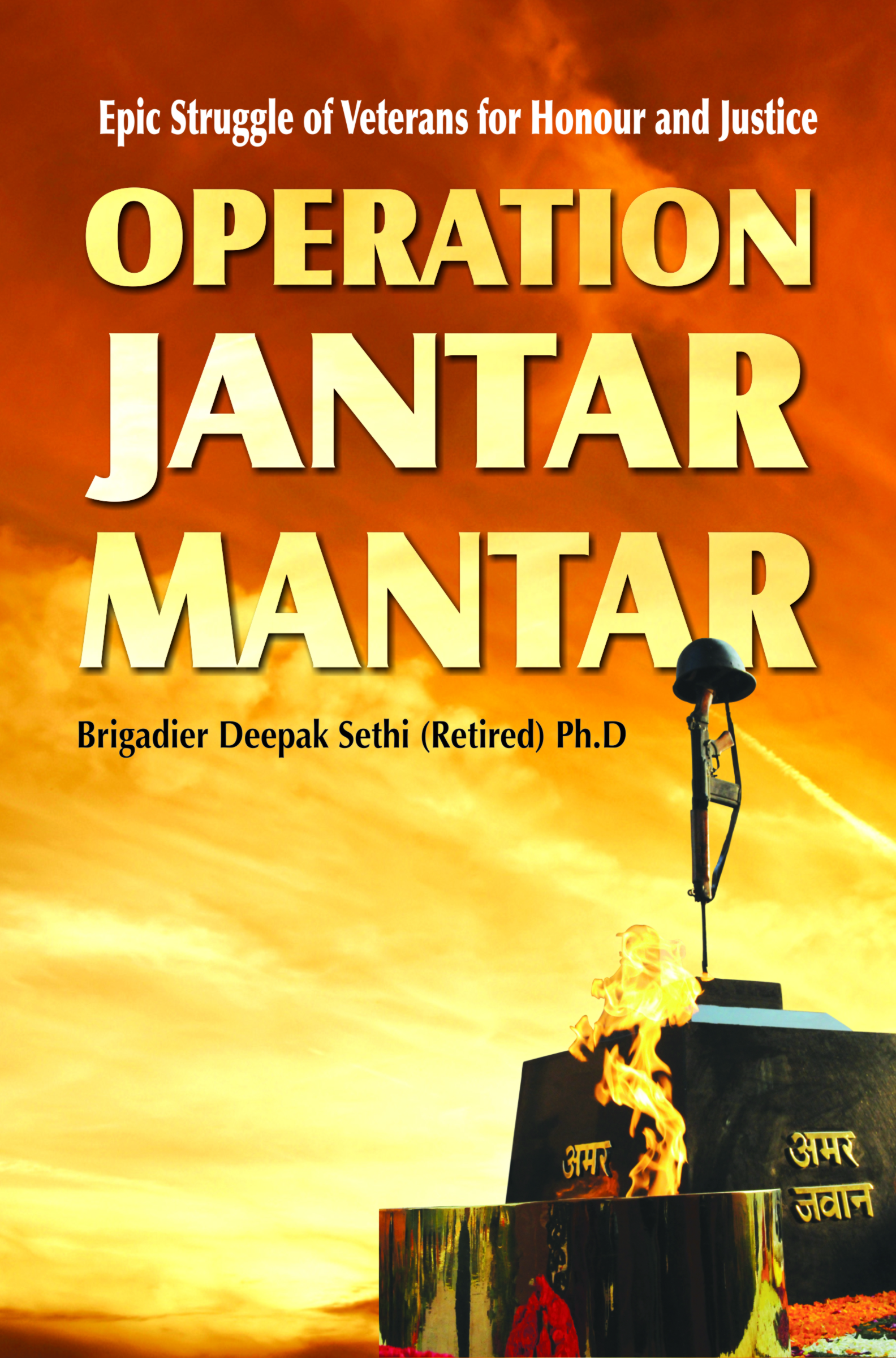 A small group of retired military officers from the Indian Armed Forces come together to contribute to the ongoing struggle of Veterans for honour and justice. It is virtually a rollercoaster ride for them as they respond to a series of sudden and unexpected developments. By re-strategizing and nimbly executing course-corrections, they bounce back after each challenging situation right up to a dramatic climax.
A small group of retired military officers from the Indian Armed Forces come together to contribute to the ongoing struggle of Veterans for honour and justice. It is virtually a rollercoaster ride for them as they respond to a series of sudden and unexpected developments. By re-strategizing and nimbly executing course-corrections, they bounce back after each challenging situation right up to a dramatic climax.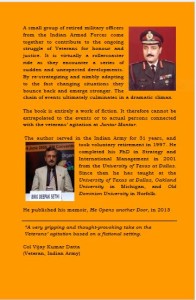 ank of Brigadier General. He completed his PhD in Strategy and International Management in 2001 from the University of Texas at Dallas. Since then he has taught at the University of Texas at Dallas, Oakland University in Michigan, and Old Dominion University in Norfolk.
ank of Brigadier General. He completed his PhD in Strategy and International Management in 2001 from the University of Texas at Dallas. Since then he has taught at the University of Texas at Dallas, Oakland University in Michigan, and Old Dominion University in Norfolk.